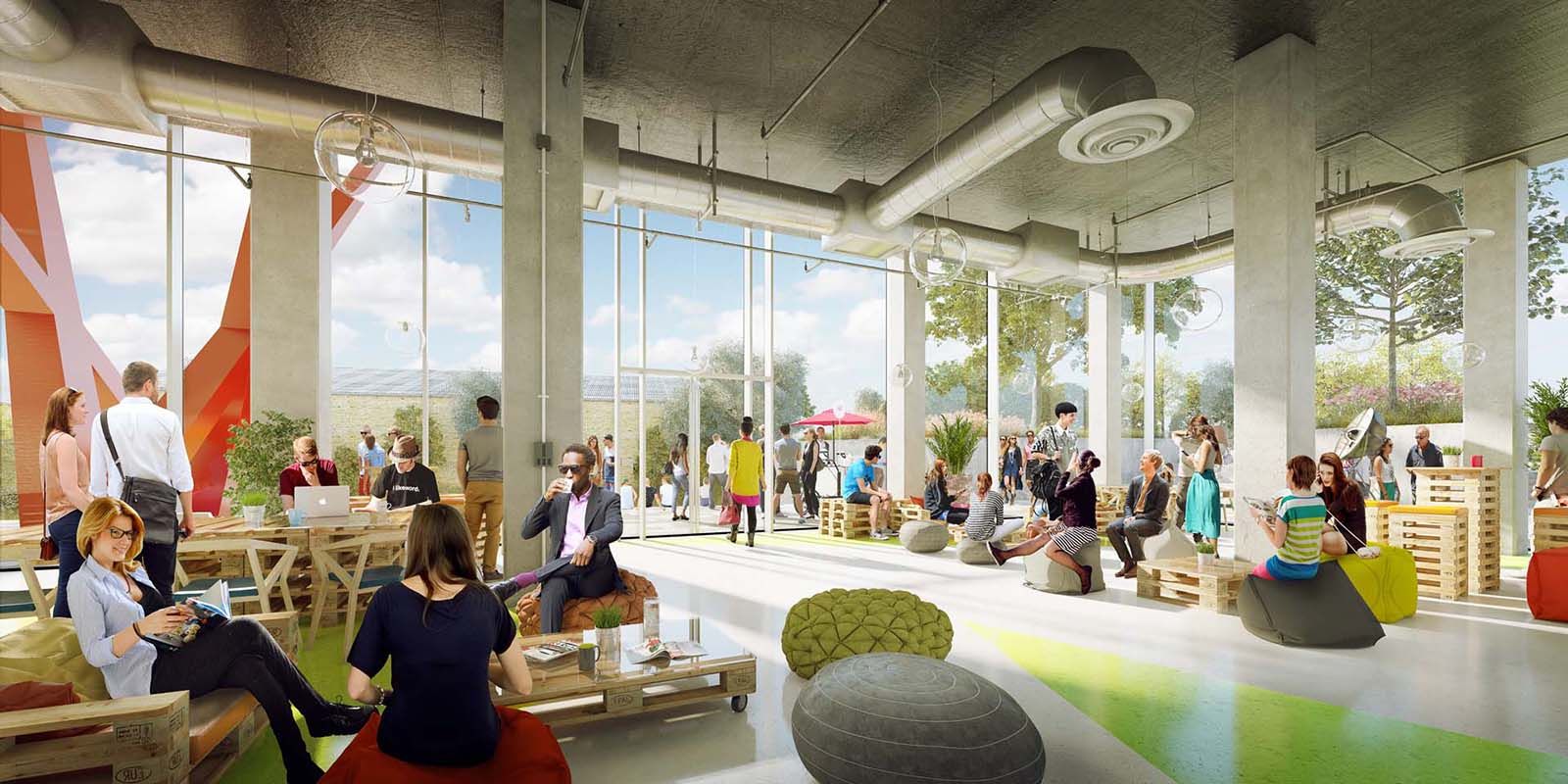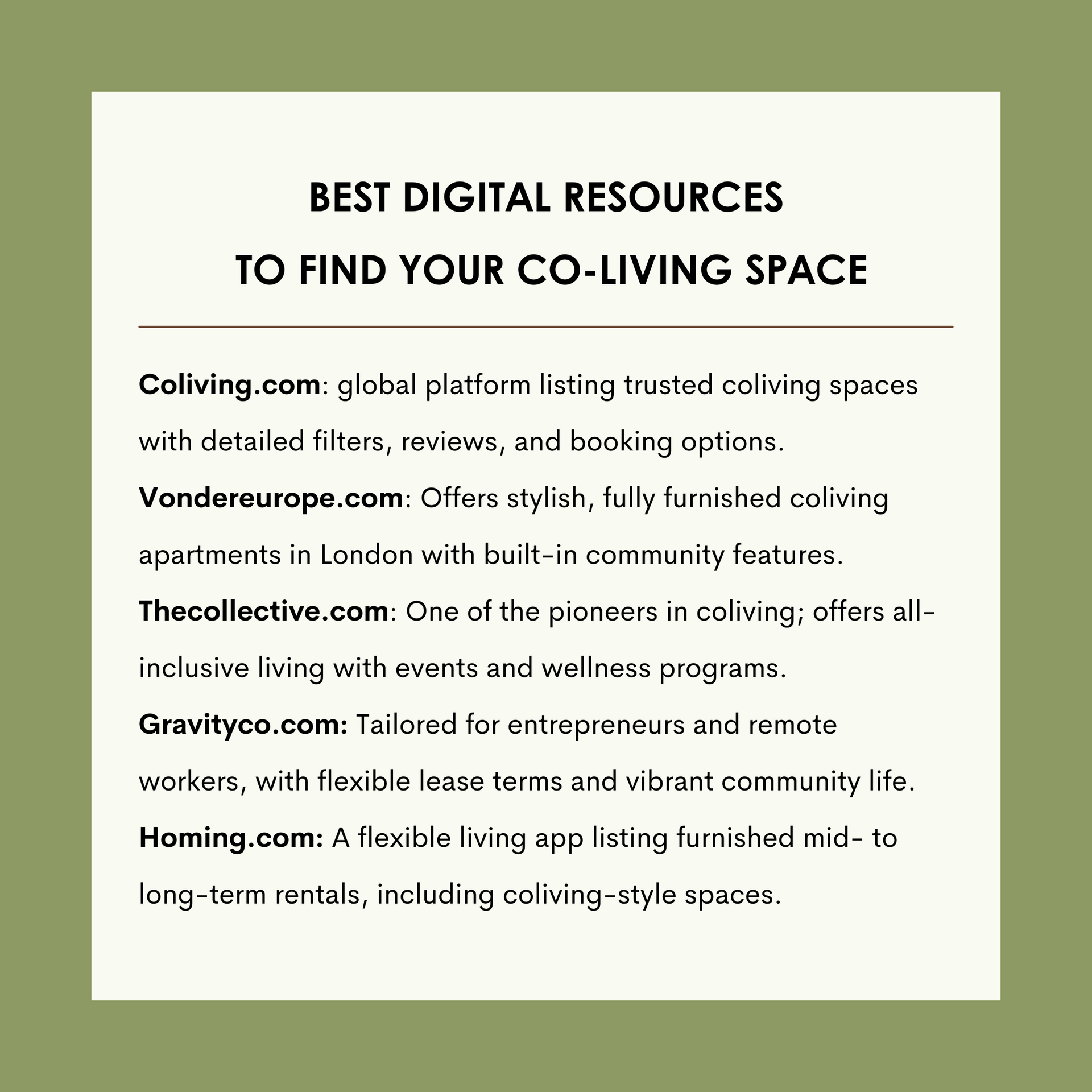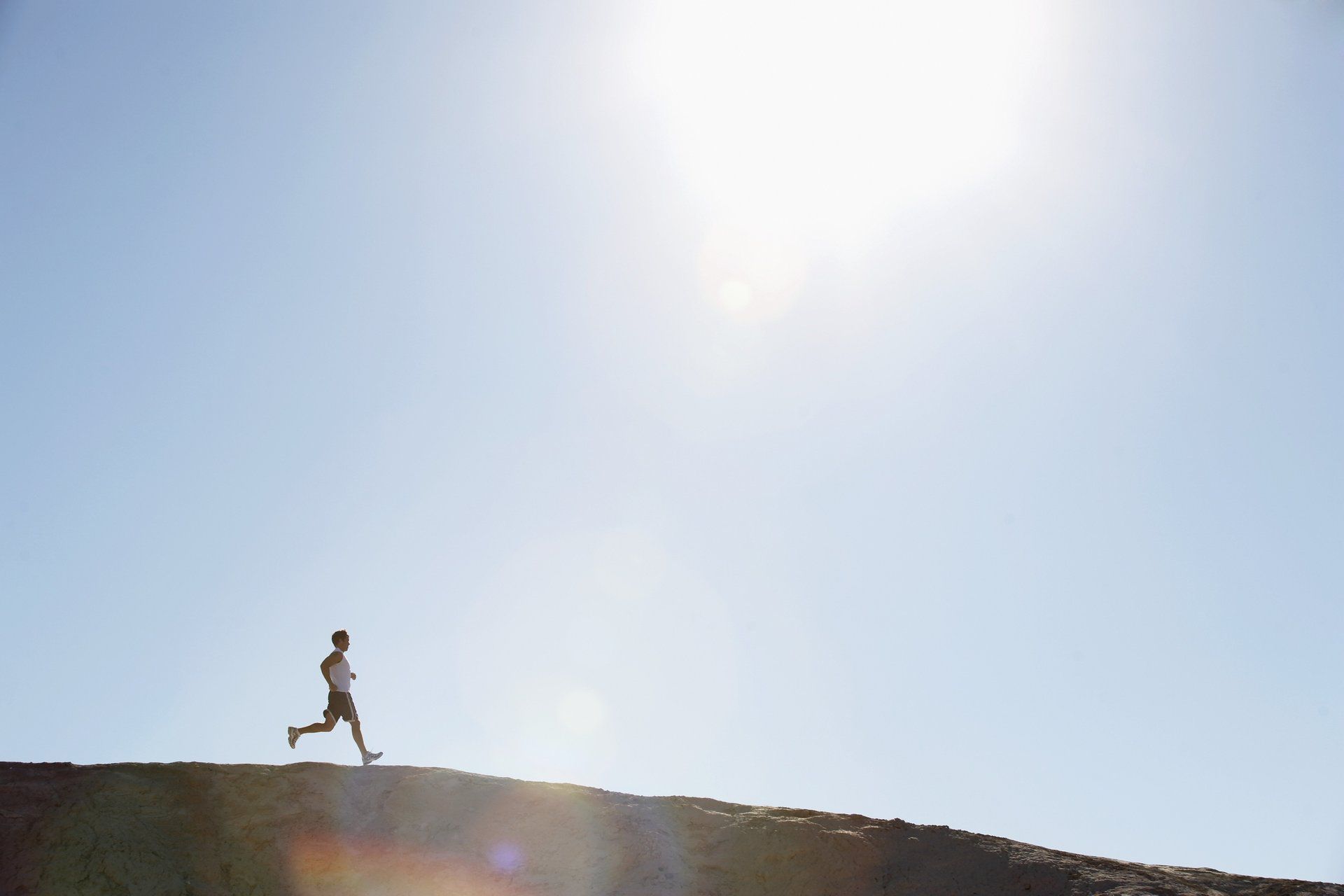Co-living: a greener, healthier urban experience
In a city as vibrant and expensive as London, new ways of living are redefining how we think about home, community and wellbeing. Co-living is a modern form of communal living that offers not just a roof over your head, but a lifestyle rooted in connection, sustainability, and affordability.

Co-living blends private rooms with shared spaces like kitchens, living rooms, gardens, and co-working areas. But more than just a housing model, it fosters intentional communities that value collaboration, mutual support, and shared responsibility. It’s ideal for remote workers, students, young professionals, and anyone seeking meaningful social interaction in a fast-paced city.
Co-living and sustainability
Some of the most innovative examples of co-living in Europe can be found in London, which has emerged as a hub for reimagining urban lifestyles. Co-living is not explicitly mentioned in the UK government's official Net Zero Strategy as a core component of national climate or housing policy. However, it aligns with several of the strategy’s goals.
With housing responsible for up to 20% of carbon emissions in countries like the UK,
rethinking how we live is essential for reaching net-zero targets
Some of the ways co-living supports the net zero goal includes the following:
🌱 Reducing emissions from the built environment - using green building materials and energy-efficient systems
🌱 Encouraging resource efficiency in housing - sharing appliances, reducing waste and consumption
🌱 Promoting low-carbon lifestyles and behavioural change - cutting energy use by up to 30%, water by 20%, and waste by 23%
Some developments in London even incorporate smart thermostats, green roofs, and real-time energy monitoring, helping residents live more consciously with ease.

Co-living and wellbeing
Co-living is more than an eco-friendly alternative—it’s a response to urban loneliness and mental health struggles. In a time marked by disconnection, co-living spaces are designed to foster community, trust, and emotional wellbeing.
Studies show that 70% of co-living residents feel less isolated, and 82% report
meaningful social connections within just one month
Regular fitness facilities and classes; communal dinners; and workshops focusing on healthy lifestyle aspects are the norm, and they create a rhythm of social interaction, while private rooms and flexible communal rules protect personal space.
The power of cooking and eating together
Preparing meals as a group encourages communication, cooperation, and trust, qualities that are essential for harmonious co-living. On a practical level, cooking as a group in a co-living setup can make life a lot easier. Splitting the cost of ingredients and bulk-buying staples can help reduce expenses. Coordinating shared meals also cuts down on food waste and time spent cooking individually.
From a health perspective, group cooking often encourages more balanced and home-cooked meals. When people cook together, they tend to be more mindful of ingredients and portion sizes, and they’re more likely to prepare meals with fresh produce rather than relying on processed food.
From Ownership to Access
The traditional housing model focus on ownership and doesn’t offer a solution to the high prices of urban property. Co-living shifts the focus from property to access and experience, offering flexible leases, furnished homes, and community-driven living at a fraction of London’s typical rental costs. It's an increasingly affordable, scalable solution for cities struggling with housing shortages and social fragmentation.
Without intentional affordability measures, co-living may become a lifestyle niche for the privileged, rather than a scalable solution to the broader housing crisis
However, co-living can also risk accentuating social differences. Many co-living spaces, particularly in major cities like London, are operated by private companies and priced at a premium, making them more accessible to younger, mobile professionals with stable incomes. As a consequence, this can exclude lower-income individuals, older adults, or those from marginalised backgrounds, reinforcing existing inequalities in housing access.
How to choose the right co-living space?
Choosing the right co-living space is about more than cost. It’s about alignment with your values. What does the community care about? Are sustainability and wellbeing part of the ethos? Operators that integrate these values into their design, policies, and culture offer more than a place to stay. They offer an opportunity for personal growth and collective thriving.
Co-living in London doesn’t just address the housing crisis. It reimagines urban living to be more connected, resilient, and fulfilling. And as we look toward a more sustainable future, that shift might be just what our cities -and ourselves- need most.










